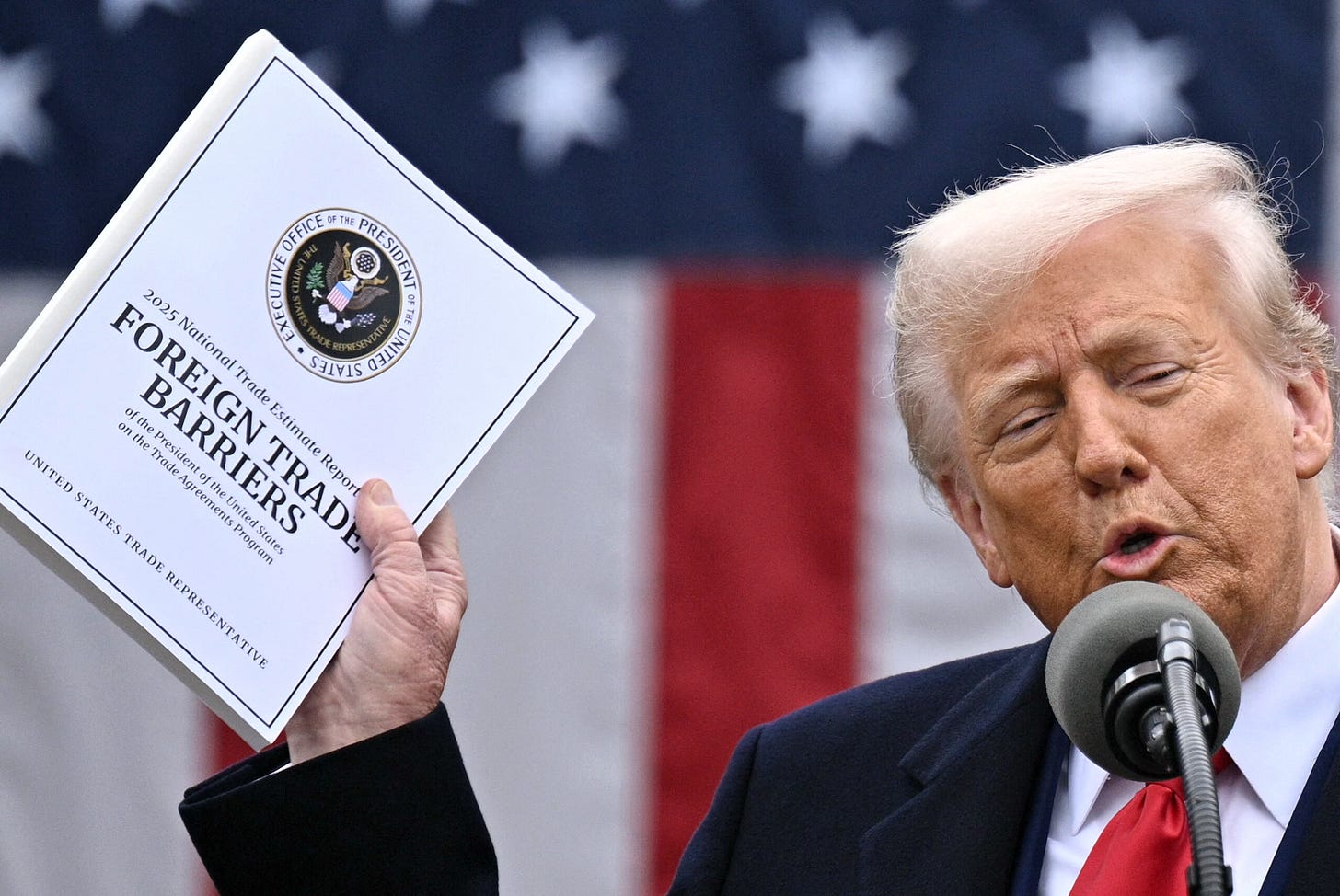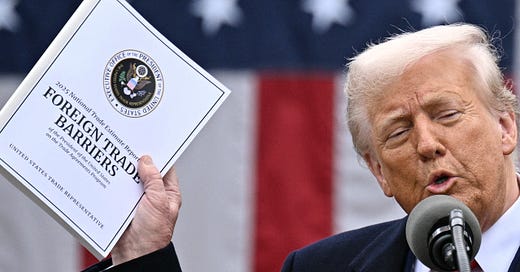Over the last decade, a consensus has grown on the Left and Right that the US needs to be more self-sufficient when it comes to manufacturing. During Covid, we discovered we didn’t make much of the equipment we needed to deal with a pandemic and were thus dependent on other nations, and so Congress passed and Trump signed the CARES Act in part to spend money to support domestic manufacturing of medical supplies. In 2022, a bipartisan majority in Congress passed the CHIPS Act to bring semiconductor manufacturing back to the U.S. out of the recognition that we had become dangerously dependent on foreign nations for microchips, which have become general-purpose technologies, necessary for national security, and upon which the AI revolution will be built. Where America had a $38 billion trade surplus in 1991 on advanced technology manufacturing, today it has a $299 billion deficit.
Liberals and conservatives, Leftists and Rightists, have long shared a broad agreement that manufacturing and its knock-on industries are an essential source of employment for non-college-educated working-class people, and that the loss of manufacturing contributed to social fragmentation, family breakdown, and the drug addiction and death crisis. In a 2024 survey, Americans agreed ten to one that “we need a stronger manufacturing sector; 47% said America suffered from globalization, while 33% said it benefited. It is partly for that reason that Joe Biden, in perhaps the most bipartisan and non-ideological decision of his presidency, kept in place the tariffs imposed by Donald Trump during his first term as president.
And yet both liberals and many conservatives are reacting with outrage as President Donald Trump puts in place precisely the trade tariffs needed to reduce our dangerous dependency on other nations and increase our manufacturing of the goods we need for national security, economic security, and societal wellbeing. The China tariffs, the CARES Act, and the CHIPS Act did not result in the return of much manufacturing, much less the rebalancing of trade. Total manufacturing jobs are 12.8 million in December 2019 and are 12.8 million today.
The US still depends on China and other nations for active pharmaceutical ingredients, personal protective equipment, microchips, and critical minerals. Suffice to say, we are a very long way from a manufacturing renaissance sufficiently robust to revitalize the communities that have lost good, high-wage jobs to China and other competitors and even rivals internationally. The reason is clear. The average tariff level globally is 6.7% compared to America’s 2.7%. And simply subsidizing industries may not be enough for two major semiconductor manufacturers, Intel and TSMC, to produce domestically without tariffs.














